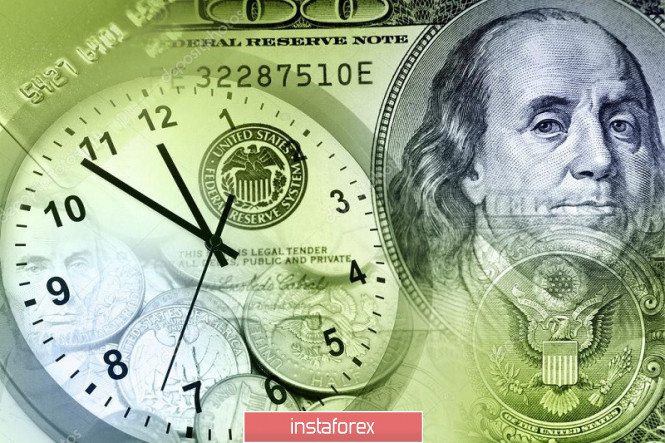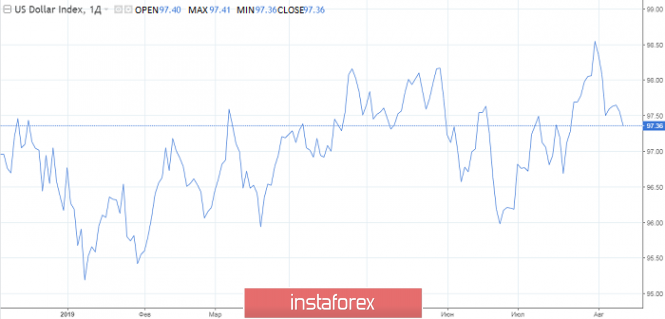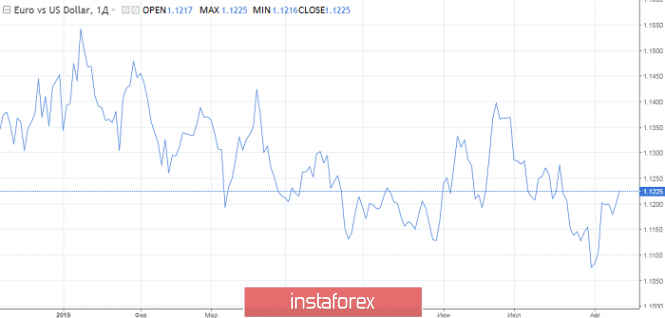
The trade war between the United States and China has moved into the next phase, and markets are aware of the new realities. The owner of the White House aggravates relations with China and forces the Federal Reserve to lower rates, while Beijing patiently awaits US elections in 2020, periodically showing off its weapons.
Economists at Morgan Stanley published fresh forecasts stating that the Fed will soften monetary policy twice this year in September and October. In 2020, in their opinion, the market will expect another 3 or 4 rounds of rate cuts. In addition, the bank reduced the 10-year forecast for US Treasury yield at the end of the year to 1.60% from the previous 1.68%.
The victory in the trade war that the United States "drew" for itself is unlikely to happen. There are a number of reasons for this. First of all, it is worth saying that no improvement in the foreign trade of the United States is happening. The potential for monetary expansion of the US central bank is much deeper than that of other world regulators. The US currency is overvalued, and the evidence is redundant: everything is visible with the naked eye. Over the past decade, the dollar index has grown by a quarter. This is the best result not only for the specified time period, but for the whole history. The Bloomberg Dollar Index has risen 32% since the US credit rating worsened in 2011.

Washington, trying to run ahead of the whole planet, including in front of China, may imperceptibly lag behind as a result. This is already becoming apparent. The Americans still have not received the expected benefits from the grand tariffs introduced in July last year. The opposite is true: US exports to China fell by 21%, while China's exports to America grew by 1%. The balance of foreign trade between the two countries also benefited. The Chinese economy slowed down to 6.2%, no one denies this, but the US is growing even more slowly (2.1%). Beijing is patient in a trade dispute, as it understands that the disaster did not happen.
If anyone is in pain, it is America. The yield curve fell to a 12-year low, which signals a recession is approaching. Not only D. Trump, but his team is also calling on the Fed to lower the rate. According to the president's trade adviser Peter Navarro, in order to bring borrowing costs to the same level as other states, the US central bank needs to reduce the rate by 75-100 bp.
By the way, Goldman Sachs lowered its forecast for US economic growth over the weekend, warning that a trade deal was unlikely before the 2020 presidential election, and predicted a recession was approaching.
According to market participants, the only thing that can change D. Trump's position regarding China is a large-scale correction of stock indices. The Dow Jones revaluation is excessive for the second time in history, according to research materials from AG Bisset Associates. The index deviated from its long-term average of 130%. Patterns from 1929, 1999 and 2018 indicate that a major pullback is near. The Federal Reserve, led by Jerome Powell, may well save the stock market from a huge sell-off. Improving relations between the US and China is unlikely to succeed. It seems that D. Trump himself is aware of this.
The US leader purposefully prepares markets for the potential negative. Therefore, he said that the negotiations between Washington and Beijing in September may not take place, which does not exclude the correction of stock indices. He also said that the country does not need the devaluation of the dollar: moreover, he is against this step. It is in words, but in reality everything is different. The Fed's calls to lower the rate are verbal interventions. Here the question is brewing: will opponents of the trade conflict be able to withdraw EUR/USD quotes outside the range of 1.1175–1.1245?

